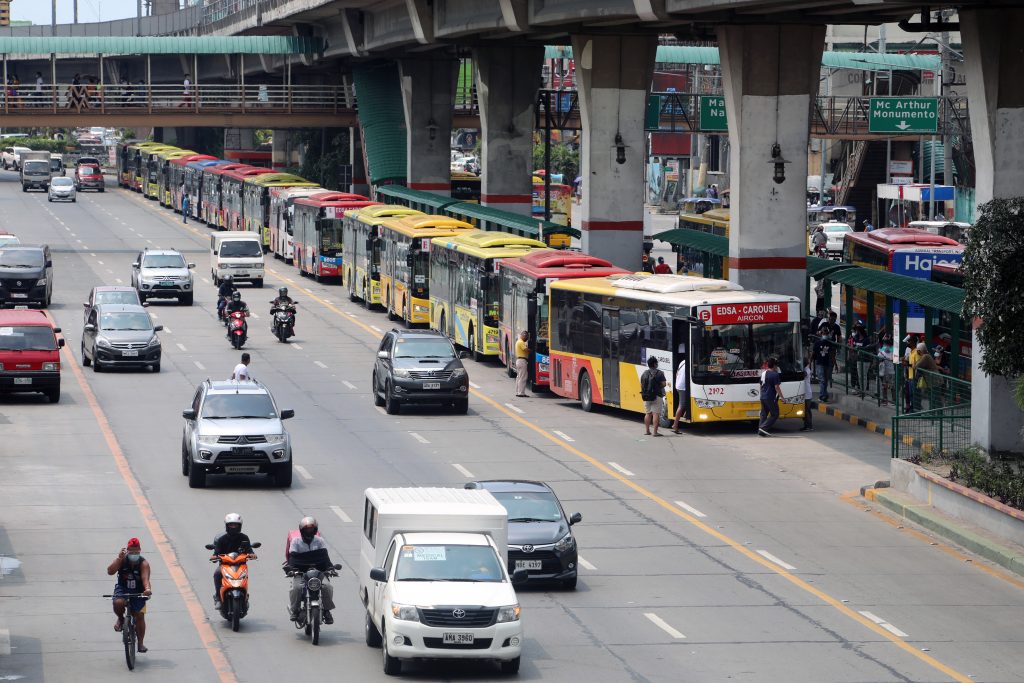Headline
Lockdown to help prepare health care system for Covid spike: DOH

MANILA – The Department of Health (DOH) said the imposition of stricter community quarantine measures would help prepare the country’s health care system for a possible spike in coronavirus disease 2019 (Covid-19) infections.
In a Laging Handa briefing on Saturday, Health Undersecretary Maria Rosario Vergeire said the total active cases in Metro Manila might hit 18,000 to 30,000 by September 30.
This was based on the projection of experts and the modelers from the Feasibility Analysis of Syndromic Surveillance using Spatio-Temporal Epidemiological Modeler (FASSSTER) and Autumn group who gave at least two scenarios with restrictions implemented.
“Iyong unang scenario na pinakita (ay) kung mayroon tayong isang linggo na general community quarantine with heightened restrictions (GCQ-HR) at pagkatapos susundan ng tatlong linggo na enhanced community quarantine (ECQ). Ang isang scenario na pinakita rin ay apat na linggo na hard lockdown (The first one was if we implement a one-week GCQ-HR followed by three weeks of ECQ, while the other scenario was if there were at least four weeks of hard lockdown),” Vergeire said.
In these scenarios, she said, the 18,000 to 30,000 increase in cases was forecast.
In a separate statement, she clarified that these numbers were initial projections and that the DOH, with its experts, has “provided comments and recommendations to further improve on this.”
“So ang sinasabi lang natin, these lockdowns will help us prepare the system but it is not going to control the spread. Kailangan pa rin nating i-prepara ang sistema. Gawin natin ‘yong mga dapat gawin para ma-prevent na natin ang further spread ng Delta variant na ito (What we are saying is that these lockdowns will help us prepare the system but it is not going to control the spread. We still need to prepare and do everything that we must to prevent the Delta variant from spreading further),” she said in the televised presser.
Metro Manila is under GCQ-HR from July 30 to August 5 and will shift to ECQ from August 6 to 20.
Based on the DOH’s Covid-19 Case Tracker, the National Capital Region has a total of 12,108 active cases as of July 30.
‘Delta variant’
In the same presser, Vergeire advised all fully vaccinated persons to remain vigilant as inoculated Delta variant carriers can still infect others.
“(A)ng bakuna natin ay nakapagbibigay ng pangako na we will be protected against severe infections, hospitalizations, and death. Ibig sabihin ibaba niya yung chance na magkaroon tayo ng severe infections (Our vaccine gives us protection against severe infections, hospitalizations, and death. Meaning it reduces the chance of us getting a severe disease),” she said.
“Pero kailangan mag-ingat pa rin tayo (dahil) kahit fully vaccinated, maaari pa rin tayong magkasakit o makapanghawa (But we still need to take caution because even fully vaccinated people can still catch the disease and infect others),” she added.
Vergeire said out of the more than 200 Delta variant carriers in the country, at least 28 are confirmed unvaccinated.
Dr. Edsel Maurice Salvana, infectious diseases expert and member of the DOH Technical Advisory Group, also warned that the Delta variant has a viral load that is 1,000 times higher than others and is “more deadly compared to non-Delta” variants, hence the more reason to get vaccinated.
“If everyone is vaccinated, the risk of death becomes lower. Until then, even vaccinated people should keep their masks on to protect those around them,” Salvana said on his social media page.
He noted that even the United States has asked its vaccinated people to put their masks back on “not because they think it is necessary for vaccinated, but so the vaccinated don’t infect the unvaccinated who are more likely to die.”



























